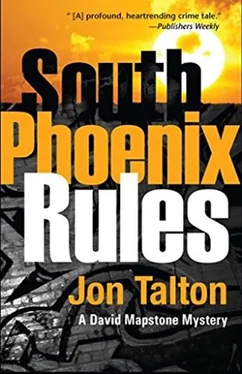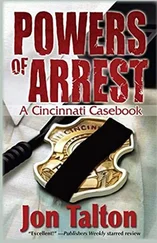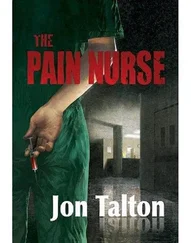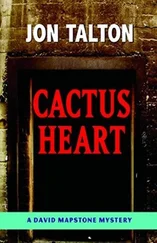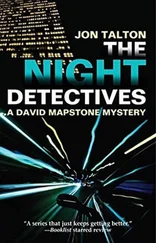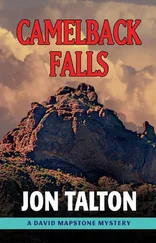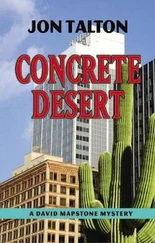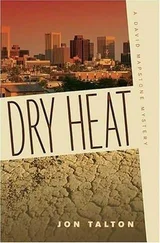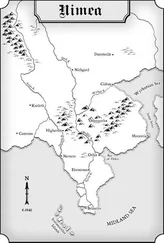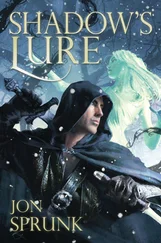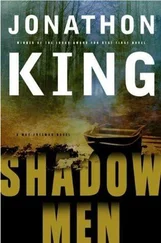Violent crime in the areas policed by the county was at twenty-year lows and the jails were well run. He had put Bobby Hamid in prison. Mike Peralta had been the best sheriff in the county’s history, better than “Cal” Boies-Peralta never used his deputies to sway an election-better even than Carl Hayden, who went on to be one of the longest-serving senators in American history. He stood for, as I heard him say in one campaign speech, “tough law enforcement and simple justice.” In the end, the only thing that seemed to matter was his opponent’s pledges to “stop illegal immigration.” “What part of illegal don’t you understand?!,” one of his campaign signs read. I wondered who did the landscaping at the new sheriff’s house in Fountain Hills. Now he’d probably use inmates.
By the end of the week my beard was coming in nicely. I hadn’t worn one since I had joined the Sheriff’s Office. I awaited word from the university, wondering what it would be like to teach again, what students were like now. I had seen some of the classrooms. They had high-tech lecterns with a microphone and a computer dock for PowerPoint presentations and all sorts of new media. I didn’t need that. Just give me some willing minds. I wondered if I would have to take Robin to class with me. I wondered if I would be endangering the students as long as this case remained open. Some times I lay awake and pondered whether Jax could really be the killer they said he was. Most of the time I fought to keep my mind off the events of last year, especially the late summer when the dreadful heat lingered. Sometimes the bedroom seemed so large that I would shrink to nothing and float away.
If Jax was really involved with the Sinaloa cartel, and Robin was being targeted, there really wasn’t a damned thing we could do. That would have been my reaction if I were just watching our lives from the outside. The cartels controlled entire states in Mexico. Even the Mexican army couldn’t stand against them. Thousands had been murdered down there. A classroom of kids had been massacred in Juarez recently, wrong place wrong time, but that showed their reach. It was only a matter of time before they reached across the border in a big way.
A battering ram through the old front door followed by an all-out assault. A bomb in the car. Not a damned thing you could do. I knew all this. And I didn’t really care if they killed me. That was the truth. For the first time in my life, I didn’t give a damn. I was at peace with it, in fact. But I had someone to look after. That was a knot in my stomach. At least this reality made the panic attacks go away. And I was determined we would survive.
After a week, the cabin fever was high enough that I took a chance. We snuck out at ten p.m. in the Prelude and went to the Sonic on McDowell just east of Seventh Street. I couldn’t chance a sit-down restaurant, but this seemed as safe as we could make it: well lit, on a major artery with an escape route. I made Robin wear the protective vest under her hoodie. She ate a foot-long cheese Coney and I had a Supersonic cheeseburger and a diet cherry Coke.
Two spaces away sat a Toyota holding a plump woman with long red hair and a little girl with brown hair. The little girl was leaning on mom’s shoulder as she ordered. She yelled and started crying. For much of my life, screaming children were like a dental drill in my brain. I mellowed in recent years. It was a strange evolution. The little girl was out too late. She was tired and cranky. I could sympathize. Her hair was wavy, unlike her mother’s straight hair, and her face was angelic even in its tantrum. Now when I saw such scenes I just said a silent prayer that the child would be treated well and have a happy life.
“David.”
I turned back to face Robin and my half-finished burger.
She said, “Roll up the window. I’m cold.”
So we listened to the muted Sonic sound system play old hit songs, and we laughed and made light conversation in the fashion of people who had been through recent trials. My sympathy for her loss grew. My eyes continued to sweep the parking lot and the street, but our only other company was a group of six high school girls in mini-dresses, sitting on the benches and talking to one another. They were slender and mostly Hispanic, with two Anglo girls. I wondered about their stories.
We turned west on McDowell and the dash clock read ten forty-two.
The bump from behind was sudden. The car had come out of nowhere, and at first I thought it might be a fender-bender. It was a low-slung import with glowing purple paint. Traffic was light so I wondered, just for a few seconds, how the driver could have rear-ended us. Maybe he was drunk. Then I saw four doors open and men pile out. I could see guns in their hands.
My foot slammed into the floor, and after a brief seizure where we just sat there waiting to be killed, the old Honda leaped ahead. I ran the red light at Seventh. The oncoming pickup never stopped and I could see the Ford F-150 grille coming into the side window. I got more power out of the engine just in time and as we passed Safeway the speedometer needle was resting on eighty.
“What happened back there?”
“They had guns. Climb in the back seat and lie as low as you can.”
Her long legs slid against me as she moved between the seats. She disappeared from the rearview mirror. Unfortunately, the purple car was right on my tail. I swung south on Third Street and accelerated again, then ran the red light at the ramp to the Papago Freeway. The car bumped down hard and I wished I had unloaded the boxes from the trunk. I kept the pedal on the floor and we sped down the ramp to the wide, depressed highway, the tachometer in the red. I had the Python on my hip and wished I had brought the Five Seven. There was no tactical solution if I chose to take them on. They had automatic weapons in that car. I had six rounds and two Speedloaders of ammunition.
The purple car ran up behind and came over into the next lane. It was a Kia. The black-tinted back window came down and a gun barrel came out. I slammed on the brakes, fighting the Prelude as it shuddered, and pulled to the right. My speed dropped in half to forty, and I heard the tires scream behind me. The Kia shot ahead momentarily. It lacked a license tag. That came from a forward glance I made while trying to watch the five lanes of freeway I was trying to thread. The back of a semi came within inches of the front bumper, then I slid into a slot between two more trucks, changed lanes again, and hit the Sixteenth Street exit. A cascade of horns followed my moves. I thought I heard a collision behind me. Where the hell was a cop when you needed one?
“David?”
“Stay down.”
I swung south on Sixteenth and blew past Roosevelt doing seventy, swerving between cars. Unfortunately, the rear view gave me no peace.
“Fuck.”
I don’t know how he crossed that many lanes of freeway after overshooting me by ten car-lengths, but the purple car was a block behind, the streetlights making it glow. The driver was expert. And determined. I unholstered the Python and set it on the seat.
Shooting the driver might slow them down.
Then I hit on a better plan.
Phoenix’s traffic lights are generally set so that if you do the speed limit, you’ll hit green. So I doubled the speed limit and went effortlessly through Van Buren, Washington, and Jefferson, then crossed the railroad yards on the narrow overpass. Our pursuers easily matched me and bumped us twice. But I kept changing lanes. He wasn’t going to get alongside, or get ahead and pull a PIT maneuver: Tactical ramming.
All I needed was one more intersection and in a few seconds Buckeye Road flashed past. Susie’s Mexican food was closed and dark. Another half mile and I turned right into the central city precinct of PPD. It was close to shift change and cruisers were coming and going. Scores of marked units were parked and off-duty cops were walking to their civilian cars. The Kia continued on south, not changing speed.
Читать дальше
